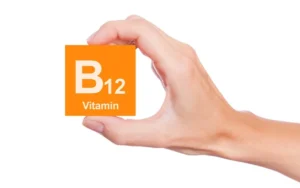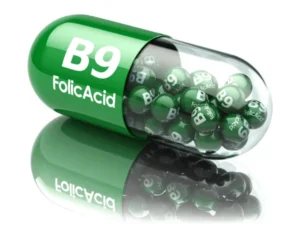Are you noticing unusual white patches on your face? This might be more than just a simple skin issue; it could be a sign of white patches on face due to vitamin deficiency. Vitamins are crucial for maintaining skin health and a deficiency in certain vitamins can lead to visible changes, including discoloration known as leukoderma or vitiligo. In this article, we explore the various vitamin deficiencies that can lead to white patches on the skin, effective dietary practices to counteract these deficiencies, and when it’s important to seek medical advice.
Vitamin Deficiencies Causing White Patches on the Face

Identifying the specific vitamin deficiencies that can lead to white patches on face is crucial for effective treatment. Here are the key vitamins whose lack can manifest as white patches on the skin:
Vitamin B-12

- Role: Crucial for red blood cell production and neurological function.
- Deficiency Symptoms: Leads to pernicious anemia and can cause depigmentation, showing up as white patches.
Vitamin C

- Role: Essential for collagen production, which supports skin health and elasticity.
- Deficiency Symptoms: A lack of Vitamin C can result in impaired wound healing and skin discoloration.
Vitamin D

- Role: Important for calcium absorption and skin cell metabolism.
- Deficiency Symptoms: Vitamin D deficiency can cause an imbalance in skin pigmentation, contributing to white patches on face.
Folate (Vitamin B-9)

- Role: Necessary for DNA synthesis and red blood cell production.
- Deficiency Symptoms: Can lead to hyperpigmentation issues and thus, white patches.
Each of these vitamins plays a pivotal role in maintaining skin pigment and health. A deficiency in any of them can disrupt your skin’s natural coloration, leading to noticeable white patches on your face. It’s important to include foods rich in these vitamins in your diet or consider supplements if dietary intake is insufficient.
Specific Conditions and Symptoms
When dealing with white patches on face , it’s essential to understand the conditions that can lead to these symptoms and their specific signs:
Conditions Causing White Patches

- Vitiligo: Loss of skin pigment due to the destruction of melanocytes.
- Pityriasis Alba: Mild form of eczema causing pale patches, typically in children.
- Tinea Versicolor: Fungal infection that leads to small, discolored patches on the skin.
Common Symptoms
- Discoloration: Visible white or light patches on the skin.
- Texture Change: Patches may have a slightly scaly texture.
- Itching or Mild Irritation: Especially in conditions like Pityriasis Alba.
Understanding these symptoms and conditions is crucial for diagnosing and effectively addressing white patches on face due to vitamin deficiency. Each condition might require a different approach for treatment, emphasizing the need for proper medical diagnosis and intervention.
Treatment Options
Addressing white patches on face due to vitamin deficiency involves a combination of topical treatments, light therapy, and dietary adjustments. Here are some effective treatment modalities:
Topical Treatments
- Medicated Creams: Including corticosteroids or calcineurin inhibitors to reduce inflammation and promote skin color.
- Vitamin-Rich Ointments: Application of topical ointments containing vitamins can aid in repigmentation.
Light Therapy
- Narrowband UVB Therapy: This is the most common form of phototherapy used to treat vitiligo and can be effective in restoring color to the white patches.
- Excimer Laser: Targets specific areas and can be used for small patches of depigmentation.
Dietary Adjustments
- Vitamin Supplements: Taking supplements like Vitamin B-12, Vitamin D, Vitamin C, and folate can help correct deficiencies and support skin health.
- Diet Rich in Antioxidants: Consuming foods high in antioxidants can protect the skin and aid in the maintenance of normal skin pigmentation.
Consulting a Dermatologist

- Diagnosis and Personalized Treatment Plans: It is crucial to consult with a dermatologist to get a proper diagnosis and a tailored treatment plan based on the specific cause of the white patches on face .
Implementing these treatments can significantly improve the appearance of white patches and overall skin health, particularly when started early and followed consistently.
Dietary Recommendations
Proper nutrition plays a pivotal role in managing and preventing white patches on face due to vitamin deficiency. Here’s a guide to help enhance your dietary habits:
Foods to Include
- Rich in Vitamin B-12: Include animal products like meats, eggs, and dairy products, or fortified cereals if you are vegan.
- High in Vitamin C: Citrus fruits, strawberries, bell peppers, and dark leafy greens help in collagen production and skin repair.
- Sources of Vitamin D: Fatty fish like salmon and tuna, fortified milk and juices, and exposure to sunlight.
- Folate-Enriched Foods: Consume more legumes, nuts, and dark green vegetables such as spinach and kale.
Foods to Avoid
- Processed and Junk Foods: These can exacerbate skin conditions and lead to nutrient deficiencies.
- Excessive Sugars and Fats: Limit intake to prevent inflammation which can worsen skin health.
- Alcohol and Excessive Caffeine: These can deplete your body of essential nutrients and adversely affect skin health.
Incorporating these dietary adjustments can help maintain balanced nutrient levels and support skin health, potentially reducing the occurrence of white patches on face due to vitamin deficiency.
When to Consult a Dermatologist
Addressing white patches on face due to vitamin deficiency effectively often requires professional medical advice. Here’s when you should consider consulting a dermatologist:
Early Signs
- Initial Appearance: If you notice the first signs of white patches on your face or other parts of your body, it’s important to seek professional advice promptly.
- Changes in Existing Patches: Any changes in the size, shape, or color of existing patches should be evaluated.
Diagnosis and Treatment
- Accurate Diagnosis: Dermatologists can provide a precise diagnosis, distinguishing between different causes of white patches like vitiligo, nutritional deficiencies, or other dermatological issues.
- Personalized Treatment Plans: Based on the diagnosis, dermatologists can recommend the most effective treatments, including topical applications, light therapy, and dietary changes tailored to your specific needs.
Regular Monitoring
- Follow-Up Appointments: Regular check-ups can help monitor the progress of treatment and make adjustments as needed.
- Long-Term Care: Dermatologists can guide long-term care strategies to manage or mitigate white patches on face resulting from vitamin deficiency effectively.
Consulting a specialist ensures that you receive targeted and effective treatment, improving the chances of a positive outcome.
Conclusion

Dealing with white patches on face can be challenging, but with the right knowledge and resources, it is manageable. Here’s a quick recap of the crucial steps to address this condition:
Key Takeaways
- Understand the Role of Vitamins: Recognize how deficiencies in vitamins like B-12, C, D, and folate can lead to skin discoloration and white patches.
- Identify Early and Seek Treatment: Early detection and consultation with a dermatologist are essential for effective treatment and potentially reversing the discoloration.
- Dietary Adjustments: Incorporate a balanced diet rich in essential vitamins to support skin health and prevent further deficiencies.
- Follow Professional Advice: Adhere to the treatment and dietary recommendations provided by healthcare professionals to enhance your skin’s appearance and health.
Maintaining Skin Health
- Regular Monitoring: Keep track of any new changes in your skin’s appearance and consult your dermatologist regularly.
- Lifestyle Adjustments: Protect your skin from excessive sun exposure and avoid harsh skincare products that could aggravate the condition.
By following these guidelines, individuals affected by white patches on face vitamin deficiency can see improvements in their skin condition and overall well-being.
Read Also:
